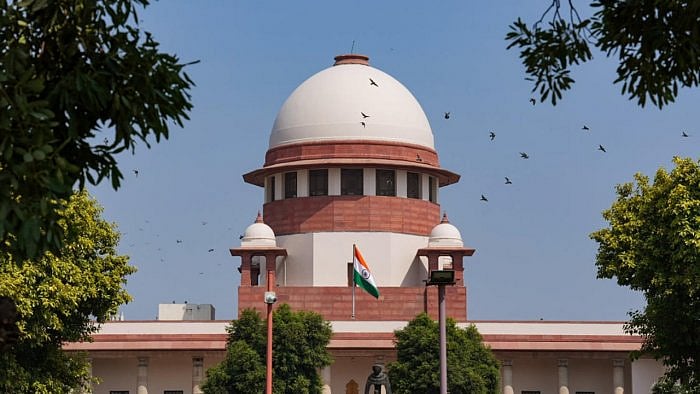
The Supreme Court has told a serving Army man that he would lose his job as well as liberty if he did not marry the complainant with whom he came in touch with a matchmaking portal Shaadi.com.
A bench of Justices Sanjay Kishan Kaul, Abhay S Oka and Vikram Nath extended anticipatory bail plea of the petitioner after his counsel submitted that he is serving in the army and could not get leave but his family members have discussed and everyone is ready for the marriage. The petitioner is expected to come on leave in this month itself.
"That being the position, we expect that the marriage would take place before the next date. We have cautioned the counsel for the petitioner of the consequences of not complying with the assurance which persuaded us to grant anticipatory bail," the bench said.
An FIR was lodged against the petitioner on August 7, 2021 with police station Mauli Jagran, Chandigarh.
It was alleged that the complainant and the petitioner met through a social site i.e. shaadi.com. Both started talking with each other and they met for the first time in a hotel Blackhouse in Zirakpur (Punjab).
The petitioner informed the complainant that he had talked to his parents about their marriage and thereafter, he made physical relations with her and promised that they would get married soon.
However, after she got pregnant, the petitioner sent his friend to give her some medicines and would keep assuring that they would get married. She informed her parents that she liked the petitioner and wanted to marry him. Afterwards, her parents wanted to talk to the parents of the petitioner. However, since then, the petitioner stopped picking up her calls despite several attempts.
It was also submitted that warrant of arrest of the petitioner had also been issued by the court but the officials of the Army Cantonment Jalandhar, where the petitioner was posted, did not allow the local police to arrest him.
The Punjab and Haryana High Court had declined him relief in the form of pre-arrest bail.
On his appeal, the top court granted him anticipatory bail as the petitioner's counsel submitted that he was and is willing for a marriage but it was the complainant who backed out. He also claimed whatever had happened, it was all consensual.
Subsequently, the counsel for the complainant also submitted that she was willing to marry the petitioner as suggested by him.

